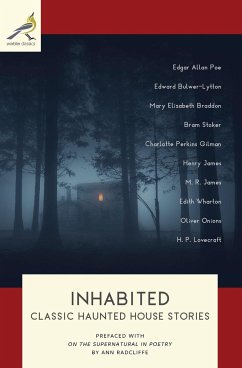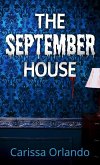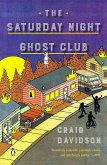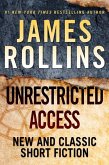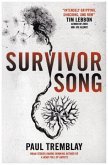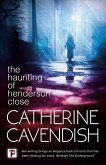Houses creak, shudder, moan, whistle, and whine. With eye-like windows and doors that appear, at night, like tunnel entrances to the unknown, houses lend themselves to our primal and persistent sense of living among ghosts. It is not difficult to imagine our ancestors conjuring tales of haunted places as they sat around fires casting shadows on cave walls. Folklore is rife with such stories and it is no wonder that our earliest literature-from a letter written by Pliny the Younger (61-c. 112), in which he describes a haunted villa in Athens to One Thousand and One Nights-include accounts of possessed places and eerie abodes. The notion that houses are repositories of events-even possibly cemeteries of previous occupants-is by no means extinguished by the explanations of toxicologists, physicists, and psychologists. The American folklorist Louis C. Jones observed, "It might be expected that a rational age of science would destroy belief in the ability of the dead to return. I think it works the other way: in an age of scientific miracles anything seems possible." Contemporary tales of haunted houses like The Amityville Horror, The Haunting of Hill House, and Red Rose follow a through line shaped by some of the enduring classics gathered in this collection, among them Edgar Allan Poe's "The Fall of the House of Usher," "The Turn of the Screw," by Henry James and "The Lurking Fear," by H. P. Lovecraft. Includes Ann Radcliff's touchstone essay, "On the Supernatural in Poetry," which posits the difference between terror and horror, along with brief author biographies. Table of Contents Ann Radcliffe, On the Supernatural in Poetry Edgar Allan Poe, The Fall of the House of Usher Edward Bulwer-Lytton, The Haunted and the Haunters; Or, The House and the Brain Elizabeth Braddon, At Chrighton Abbey Mary Bram Stoker, The Judge's House Charlotte Perkins Gilman, The Yellow Wall Paper Henry James, The Turn of the Screw M. R. James, The Mezzotint Edith Wharton, Afterward Oliver Onions, The Beckoning Fair One H. P. Lovecraft, The Lurking Fear
Hinweis: Dieser Artikel kann nur an eine deutsche Lieferadresse ausgeliefert werden.
Hinweis: Dieser Artikel kann nur an eine deutsche Lieferadresse ausgeliefert werden.

